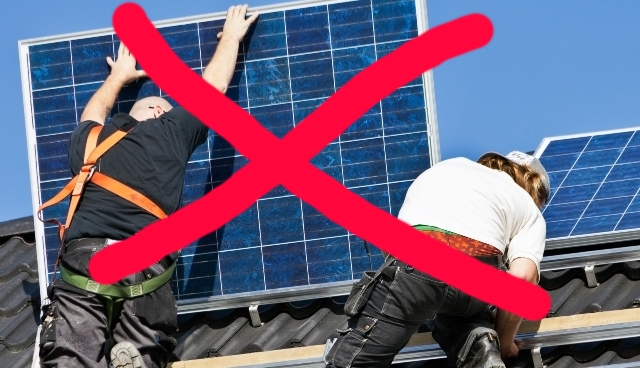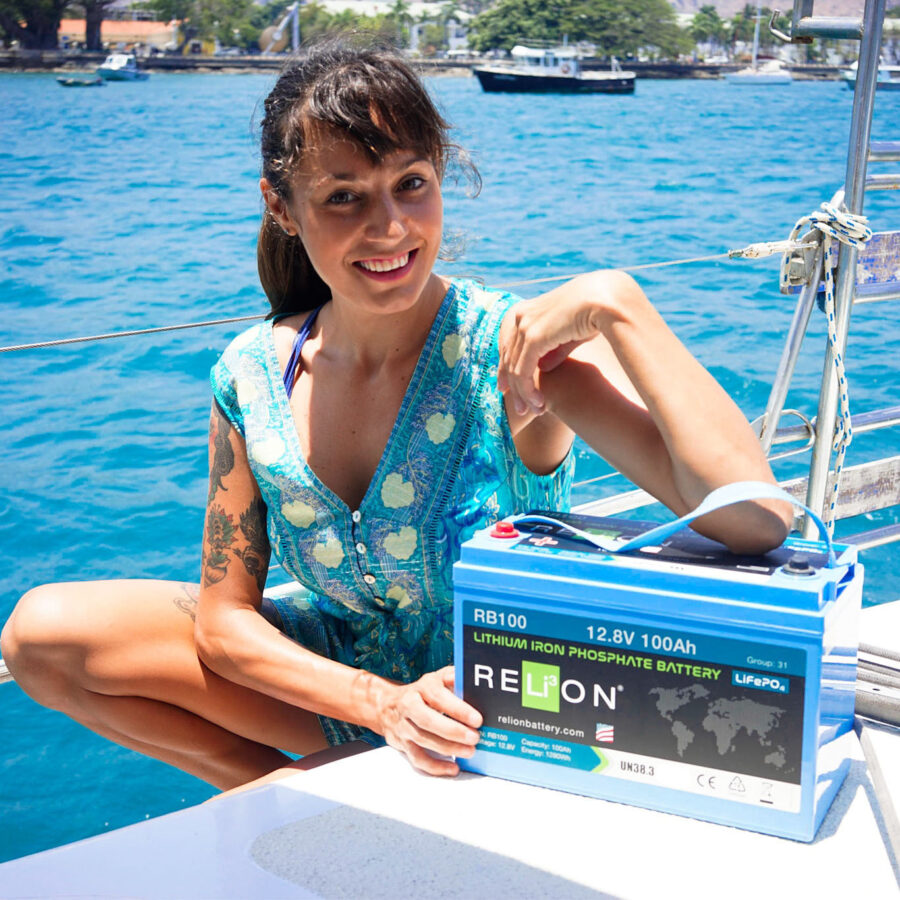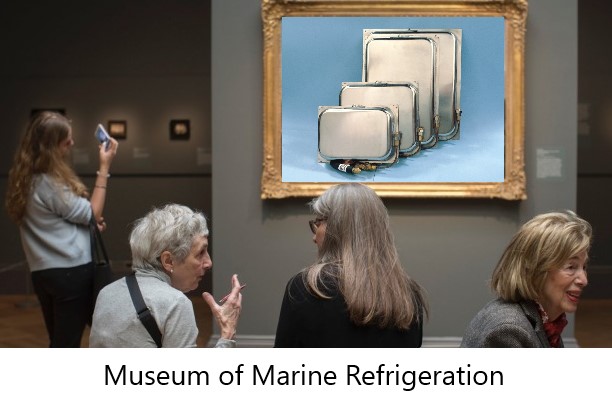Phone: (301) 352-5738
Email: info@CoastalClimateControl.com
Office | Warehouse:
1598 Whitehall Road, Suite D
Annapolis, Maryland 21409
Serious Solar for your boat or RV

A while ago I debunked some common misconceptions about solar panels in another blog here, but it seems I missed one that has come to light several times recently, i.e. the myth that to have proper, serious, useable solar power on a boat one must use residential panels, as marine solar panels are just itsy-bitsy wimpy battery top-up trickle-chargers.
Nothing could be further from the truth!
 Yes, there are smaller marine solar panels available for those that want just a trickle-charger, but once you get above 80 watts or so you'll be getting into some very useful power production. Using multiple marine solar panels, possibly of different sizes, types, and shapes, and in different locations, will enable you to install really serious solar power on to hard tops, davits, arches, and even in canvas biminis where they'll be rarely, if ever, seen. Installing razor-thin, semi-flexible walk-on marine panels by screwing and/or gluing them directly to a hard surface will add minimum bulk and weight, and that's something especially important for multi-hull applications.
Yes, there are smaller marine solar panels available for those that want just a trickle-charger, but once you get above 80 watts or so you'll be getting into some very useful power production. Using multiple marine solar panels, possibly of different sizes, types, and shapes, and in different locations, will enable you to install really serious solar power on to hard tops, davits, arches, and even in canvas biminis where they'll be rarely, if ever, seen. Installing razor-thin, semi-flexible walk-on marine panels by screwing and/or gluing them directly to a hard surface will add minimum bulk and weight, and that's something especially important for multi-hull applications.
All solar panels, of all types of construction, should be able to produce somewhere near their rated watts output in ideal conditions, but it's the highest potential total 24 hour daily amp/hour yield that we are after, not just an instantaneous peak output.
Remember, whatever type of panel(s) is employed, i.e. either aluminum-framed glass panels, semi-flexible walk-on panels, or flexible panels sewn into canvas, the panel construction has no bearing on the amount of power produced. It is the type and quality of the cells in the panel that determines the potential power output, along with the way in which the panels are configured into a system.
So here's the ticker: Installing the biggest and best residential solar panels on your boat in no way guarantees that you'll be getting the biggest and best solar results. We often see those massive residential panels on boats (who could not see them!), but although they may be attractively priced, these monsters have quite a number of disadvantages when compared to true high-quality marine panels.
1. Residential panels are heavy, bulky, and designed to be mounted on a stable platform and not be subjected to twisting, torsional and heavy kinetic loads or vibration; nor to be in a heavily salt-laden environment. By comparison, marine panels are designed and constructed with all these criteria in mind and will give many years of service in the harshest of marine environments.
2. Residential panels are now being produced in large sizes of 300 plus watts to simplify installation on roofs and to reduce costs, but this makes them especially susceptible to reduced output from shading. These are high-voltage panels where upwards of 96 cells are connected in one long series string, so any shading of any portion of just one cell will diminish the power output from the entire panel. And let me right away poo-poo the idea that By-Pass Diodes (integral with every panel over 50 watts) will combat everday normal shading. No, they won't. These diodes are there to prevent cell and panel damage from excessive heat build-up caused when a cell or group of cells is coverd by an opaque object (think canvas, towel, swim suit, plate of nibbles, seagull butt, etc.). That's why they are also known as "Hot Spot Preventers". By-Pass Diodes will only come into play under catastropic hard-shading conditions and will not prevent loss of output from normal shading by near-by objects.
3. These large residential panels are also heavy, bulky and can suffer badly from twisting and deforming if they are not mounted on a very heavy and sturdy framework. In contrast, marine panels are typically no larger than 150 watts to reduce shading effects and to facilitate a more flexible and manageable installation.
4. Residential panels may carry an attractive-looking manufacturing defect warranty (up to 15 years in some cases), but that will almost certainly be void in mobile installations (vessels included), and in salt water environments. Don't be fooled by the 20-25 year output warranty, which is irrelevant in marine applications as explained here. Fortunately, marine panels from Solara and Solbian carry a 5-year true marine warranty on their manufacture and construction.
5. When compared to high-efficiency marine panels, standard residential panels typically utilize lower-cost cells that result in less total daily output and inferior low-light and low sun-angle performance. Marine solar panels from Solbian and Solara contain genuine high-grade SunPower® back-contact cells that have the highest efficiencies available and with superior low-light and low sun-angle performance, plus they produce higher daily amp/hour yields due to their unique construction.
So if you're lucky enough to have a guaranteed totally never-ever shaded location on your boat that can accommodate the bulk and weight of these big residential panels, and you don't care what the boat's designer might think of how you will be "adjusting" the aesthetics of his/her masterpiece, then go ahead.
But before doing so, take a really good look at the marine alternatives, especially keeping in mind that if you're a US tax payer you'll get back 26% (until Dec 2022, 23% unitl Dec 2023, nothing after that) of whatever you spend on a solar installation as a Residential Energy Credit on your taxes. Yes, really, even for a boat! Read about it here.
Serious solar power on a boat is indeed very possible. But you'd be well advised to heed our advice born from many a customers' sad tale of their initial dalliances with boat solar.
At Coastal Climate Control we say: Do it Once - Do it Right.
By accepting you will be accessing a service provided by a third-party external to https://coastalclimatecontrol.com/






